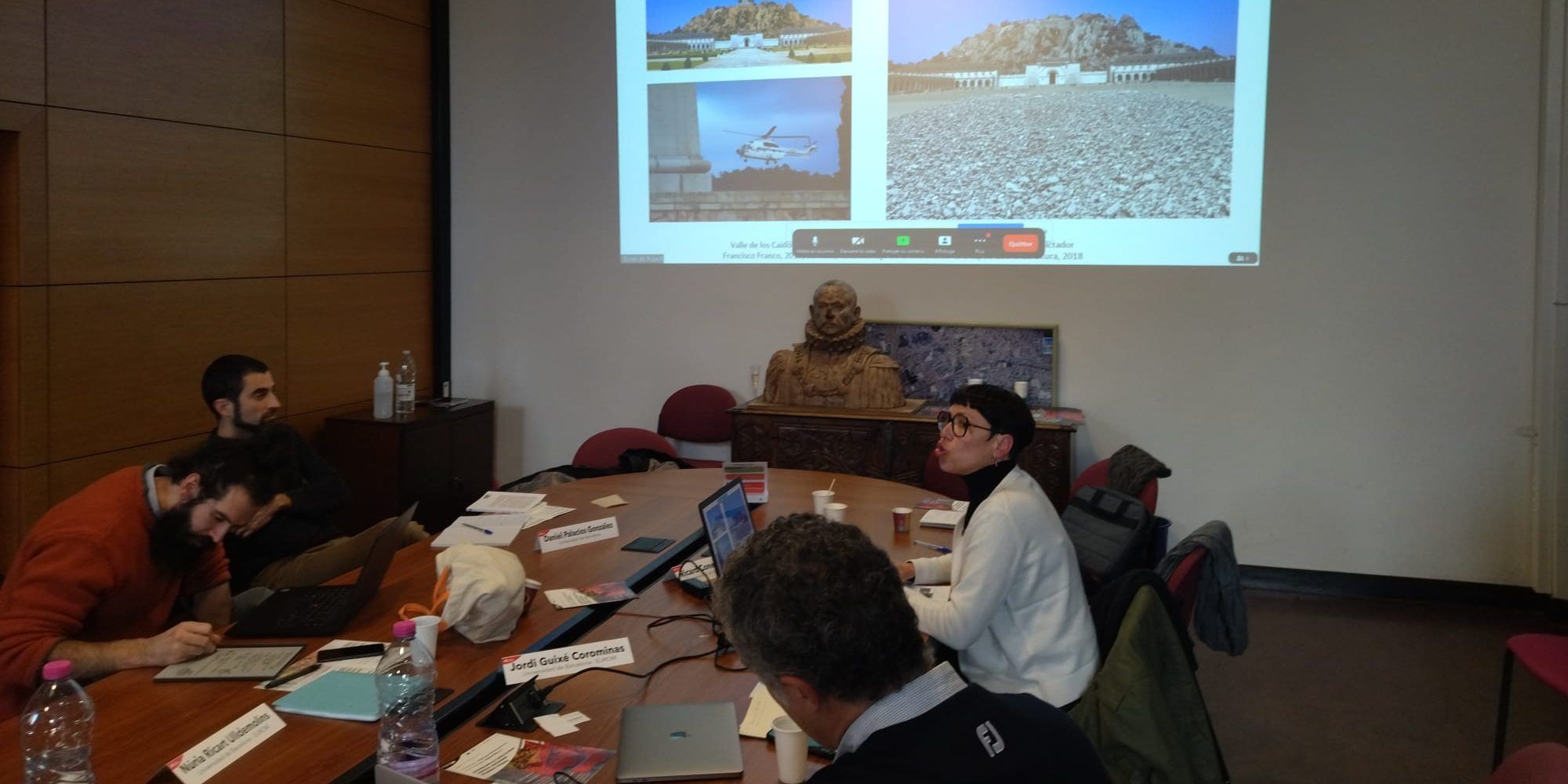The aim of this traveling seminar was, on the one hand, to visit different places of memory of the Spanish Republican exile and the management of its past in France today; and on the other hand, to debate on recent symbolic memorial policies in Europe. The seminar dealt with aspects of memorial policies such as stolpersteine interventions today, the memory of women in the urban design of Lyon, the monumentalisation of mass graves, the management of “days of memory”, and memory policies in Barcelona, among other topics. The seminar held on 14 December at the Université Bordeaux Montaigne, in front of a group of 15 university students, was attended by 11 people representing the Gernika Peace Museum, the Université Paul Sabatier de Toulouse, the Universidad Nacional de Educación a Distancia, the London University College, the University of Zaragoza, the Université Bordeaux Montaigne and EUROM.

December 12-13, 2022: Toulouse
Visit to the Musée départemental de la Résistance et de la Déportation of Toulouse, where we were welcomed by its director, Antoine Grande, who explained how the museum works and gave us a guided tour around the building, explaining the characteristics of the equipment as well as the permanent and temporary exhibitions. The next day we visited different memory sites of the Spanish Republican exile in the city: the former Warsaw Hospital, the headquarters of the Spanish Socialist Workers’ Party (PSOE) and the General Workers’ Union (UGT) between 1969 and 1971, and different spaces that are contemplated in the Circuit de mémoire: Toulouse, capitale de l’exil républicain espagnol organized by the city council.

December 14-15, 2022: Bordeaux
On the 14th, took place the international seminar Recent symbolic memorial policies, between the local and the transnational, organized by the AMERIBER – SYMBOLON research group of the Université Bordeaux Montaigne and EUROM. In the Salon Montaigne of the University, in the presence of a group of university students, the following took part with their dissertations: Dominique Trouche (Université Paul Sabatier – Toulouse 3), Rocío Negrete (UNED), Daniel Palacios (London University College), Jesús Alonso Carballés (Université Bordeaux Monatigne), Jordi Guixé (EUROM), Núria Ricart (EUROM), Ricard Conesa (EUROM), Diego Gaspar (University of Zaragoza) and Iratxe Momoitio (Gernika Peace Museum).

On the 15th, the former submarine base in Bordeaux —built during the Second World War— was visited. This building is now transformed into a centre for arts and culture through an installation that combines dynamic mapping projected on its walls with opera. The submarine base was built by the forced work of thousands of exiled republicans, and has a memorial at the gates of the centre, erected in 2011.

Related activity
Recent memorial symbolic policies: between the local and the transnational

